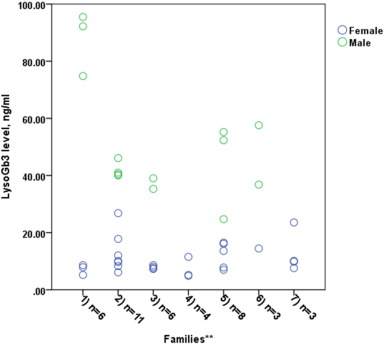Fabry disease (FD) is a rare X-linked lysosomal storage disease caused by mutations in the α-galactosidase A (GLA) gene causing deficiency of α-galactosidase A which results in progressive glycosphingolipid accumulation, especially globotriaosylceramide (Gb3), in body liquids and lysosomes. In Jun 5, 2017, Albina Nowak and others published an article in << Molecular Genetics and Metabolism >> which title is“Genotype, phenotype and disease severity reflected by serum LysoGb3 levels in patients with Fabry disease”. They conducted a multidisciplinary clinical characterization during their routine annual examinations, and measured serum LysoGb3 levels by high-sensitive electrospray ionization liquid chromatography tandem mass spectrometry. LysoGb3 relates to disease severity, enzyme replacement response, and to the genotype severity in males. LysoGb3 supports identifying patients at risk who require intensive monitoring and treatment. LysoGb3 appears to be one marker of metabolic phenotyping of FD.
Read More
